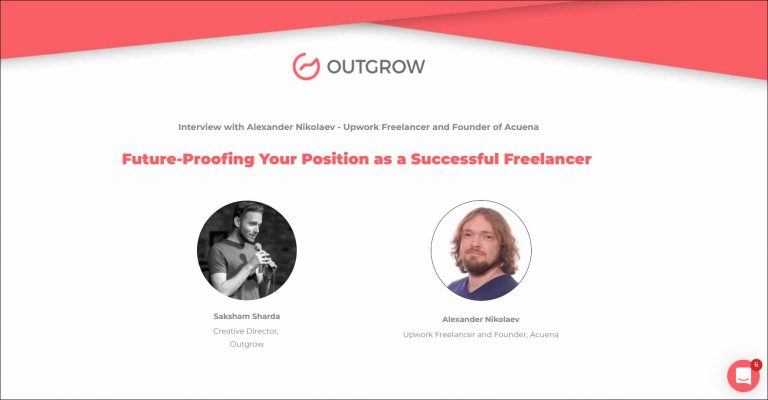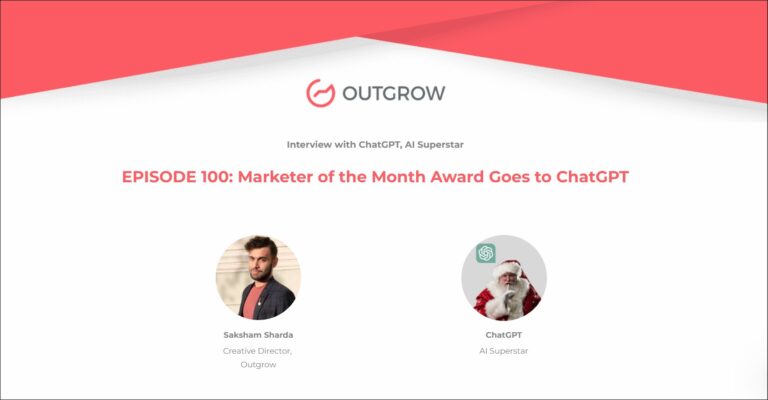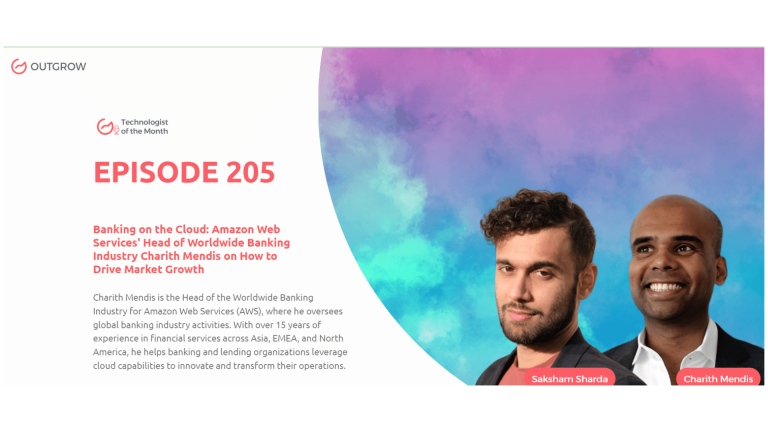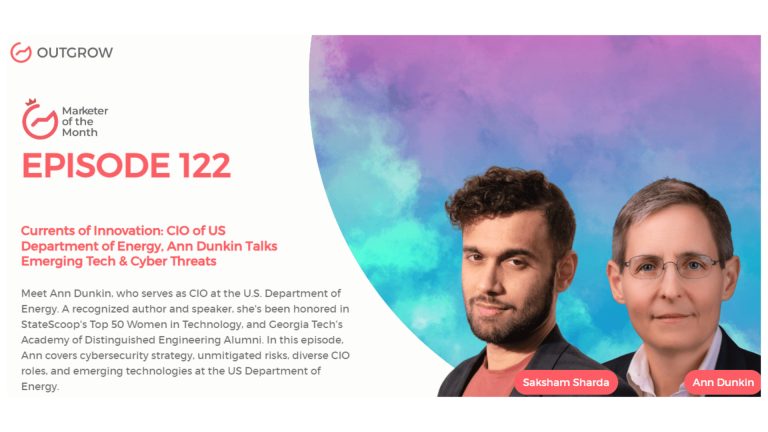Summarize with :
EPISODE 209: Marketer of the Month Podcast with Hugo Coelho
Table of Contents
Hey there! Welcome to the Marketer Of The Month blog!
We recently interviewed Hugo Coelho for our monthly podcast – ‘Marketer of the Month’! We had some amazing insightful conversations with Hugo and here’s what we discussed about –
1. Approach to Regulation: Evidence-based, facilitating exchange of views among regulators.
2. Digital Tools: Development of tools like the Bitcoin electricity index and stablecoin mapping.
3. Political Priorities: Intersection of digital and green finance as top political priorities.
4. Balancing Innovation: Ensuring regulations are tech-neutral and understanding industry dynamics.
5. Digital Finance Integration: Role in defragmentation of financial markets and capital market integration.
6. Privacy Concerns: Potential privacy issues with Central Bank digital currencies.
7. Program Marketing: Strategies to attract regulators to the digital assets program.
About our host:
Dr. Saksham Sharda is the Chief Information Officer at Outgrow.co. He specializes in data collection, analysis, filtering, and transfer by means of widgets and applets. Interactive, cultural, and trending widgets designed by him have been featured on TrendHunter, Alibaba, ProductHunt, New York Marketing Association, FactoryBerlin, Digimarcon Silicon Valley, and at The European Affiliate Summit.
About our guest:
Hugo Coelho is the Digital Assets Regulatory Lead at the Cambridge Centre for Alternative Finance at Cambridge Judge Business School and Financial Innovation for Impact, with a background that spans policy advising and financial market analysis. He was Director of Policy for Europe and the UK at Binance and a Partner at Forefront Advisers.
From Innovation to Market: Cambridge Centre for Alternative Finance’s Hugo Coelho on the Journey of Digital Assets
The Intro!
Saksham Sharda: Hi, everyone. Welcome to another episode of Outgrow’s Marketer of the Month. I’m your host, Dr. Saksham Sharda, and I’m the creative director at Outgrow. co. And for this month we are going to interview Hugo Coelho, who is the Digital Assets Regulatory Lead at Cambridge Centre for Alternative Finance.
Hugo Coelho: Great to be here. Thank you.
Don’t have time to read? No problem, just watch the Podcast!
Challenge yourself with this trivia about the exciting topics Hugo Coelho covered in the podcast.
Or you can just listen to it on Spotify!
The Rapid Fire Round!
Saksham Sharda: So let’s start with a rapid-fire round. The first question is, at what age do you want to retire?
Hugo Coelho: I to work until I’m able to, so very late, 60 something close to 70.
Saksham Sharda: How long does it take you to get ready in the mornings?
Hugo Coelho: Not a long time. I’d say half an hour, 40 minutes.
Saksham Sharda: Favorite color?
Hugo Coelho: Red.
Saksham Sharda: What time of day are you most inspired?
Hugo Coelho: Mid-morning.
Saksham Sharda: How many hours of sleep can you survive on?
Hugo Coelho: Four.
Saksham Sharda: Fill in the blank. An upcoming FinTech trend is _____.
Hugo Coelho: AI.
Saksham Sharda: The city in which the best kiss of your life happened?
Hugo Coelho: Lisbon.
Saksham Sharda: Pick one. Elon Musk or Mark Zuckerberg?
Hugo Coelho: Zuckerberg.
Saksham Sharda: How do you relax?
Hugo Coelho: I walk.
Saksham Sharda: How many cups of coffee do you drink per day?
Hugo Coelho: Two or three.
Saksham Sharda: A habit of yours that you hate?
Hugo Coelho: I bite my nails.
Saksham Sharda: Your favorite Netflix show.
Hugo Coelho: Pass sorry, I cannot think of it.
Saksham Sharda: One-word description of your leadership style.
Hugo Coelho: Cooperative.
Saksham Sharda: Ideal vacation spot for relaxation.
Hugo Coelho: Mediterranean.
Saksham Sharda: Key factor for maintaining a work-life balance.
Hugo Coelho: Do not lose perspective of things, I guess.
The Big Questions!
Saksham Sharda: Okay. Well, that was the end of the rapid fire. Now we can go into the longer questions. Answer with as much time and thought as you like. The first one is can you tell us more about your role at the Cambridge Center for Alternative Finance and your key responsibilities as the digital assets regulatory?
Hugo Coelho: Yeah, sure. So, the Cambridge Center for Alternative Finance is a research center with Cambridge Business School. We research alternative finance, which you can think of as financial innovation and digital finance. We produce research reports and we create tools with data and information for regulators. We also conduct capacity-building programs. We deliver courses for regulators and technical assistance, which is about helping regulators write specific regulations and put together legislative frameworks. In my job, I’m responsible for coordinating all the work on digital asset regulation and a bit on AI going forward. So again, I coordinate the research, we do in this space, and I do help with the lectures, for regulators, and I’m delivering the technical assistance programs to several regulators from across the world, so hopefully Indonesia, and Ukraine.
Saksham Sharda: So, how do these projects aim to impact the financial markets and regulatory landscape in general?
Hugo Coelho: So, I guess in digital finance, there’s big gaps in knowledge on the parts of regulators because, as you know, the technology is very disruptive and, the regulations are not necessarily tech neutral, are not necessarily fit for, for these, for these activities. So regulation plays an important role first in the sense of removing any barriers, to the development of these activities, but also enabling them. So basically our job is to capacitate regulators to do this properly, to make sure they know to address any gaps that are that exist in those institutions to then allow them to devise these regulations, obviously taking into account the different policy preferences, in different jurisdictions.
Saksham Sharda: So, how does the center approach digital asset regulation?
Hugo Coelho: Well, we don’t take a view necessarily, right? We’re evidence-based. Our job, as I said, is to capacitate regulators to make them aware of how the industry works to address the knowledge, that knowledge on knowledge gaps on the technology side, and the market side. And also to help them discuss among themselves to facilitate the exchange of views among regulators on how the regulation could look. Now, in terms of the deliverables that we have at the center, if you want, or the products as I mentioned before, we not only, publish reports and do comparative research of the regulatory frameworks in different jurisdictions, but we produce what we call digital tools, which are websites where you can find information about the markets. I think the most well-known is the Bitcoin electricity index. So my colleagues at the center have devised the formula to calculate the carbon footprint and the energy consumption of Bitcoin. We’re also working on several other tools. One that is specifically focused, on stablecoins. So we map the main stable coins in the market. We try to map the flows and provide indicators to measure the risks in different stablecoins. And there’s a new tool coming where we’re looking to defy protocols. We try to answer the question of what the level of decentralization in this protocol is for, for instance. So we create this information where the empirical base, we put out this information, everything is public to inform regulators thinking. We teach them to address regulatory gaps. We facilitate the exchange of information among themselves. And, you know, at the end of the spectrum, we provide the shot of bespoke consulting which is what we call technical assistance. For those who are in the process of writing a regulation for digital assets.
Saksham Sharda: It seems from your background, that you worked extensively on the intersection of politics and financial markets. How do you see the role of regulation evolving in the digital and green finance Sector?
Hugo Coelho: So, the digital and the climate, or the green transition are two of the top political priorities of our times. They’re also a subject of geopolitical competition. And they’re behind the revival of industrial policy, if you want in the West. Regulation sort of fits into this right? It plays a part in all this. So when you think about the regulation of digital finance and green finance we’re not just addressing the risks around market integrity, consumer protection, or financial stability. It’s more than that this regulation is there to serve a political process, which is to facilitate these transitions and to give specific jurisdiction and edge in these areas. Having said that, I think they’re slightly different in the case of green finance, you see this link very obviously in the sense that green finance is about creating taxonomy definitions and harmonizing disclosures to provide the market with sufficient information to channel investments to the green transition. So it’s basically about mobilizing private investment and making sure the funds go in the direction that you want. In digital, there’s a bit of that, but I think it’s mainly about removing barriers to innovation and providing a steer to that innovation notably through standardization. Because you need to make choices usually. And so regulation has a clear influence on the way you innovate. So again, removing barriers but at the same time providing a steer in the direction that we’re going.
Saksham Sharda: Given all this then, how can regulators effectively balance innovation with risk management?
Hugo Coelho: Well, that’s a balancing act. It’s well, there’s no, silver bullet. I think the first step is you need to try to make sure that any regulation is tech-neutral so that you’re not prescribing a specific technology, or more importantly, that you’re not impeding the development of as, of a specific, a specific technology. But then as I said, I think there is more than that. This is not always easy to do if you think about blockchain this is the whole concept of decentralization, it doesn’t fit the regulatory apparatus as we know, because you know, regulations are written for intermediaries and centralized entities. So you need to think a bit outside the box in terms of the way you do the right regulation and do supervision and oversight. Obviously, the technology also gives you new opportunities, and you can sort of embed the rules in the code. So basically it takes, I think rule number one is you need to have a much better understanding of how the industry works, about the potential. There needs to be much more dialogue between the regulators and the private sector. And, you know, this goes both ways. So the private sector needs to engage more and educate the pro the regulators about what they’re trying to achieve. Yeah, at the end of the day, as I said, it’s a balancing act. There’s no right or wrong answer to this. You need to find a way forward and you know, taking into account that the technology is going to evolve and you need to adjust rules as you go along.
Saksham Sharda: Okay. So let’s talk a bit more about your background with the Euro group and the concept of the EU. What lessons can be applied from the Euro crisis to the current landscape of digital finance and central bank digital currencies?
Hugo Coelho: So, I was the advisor to the Euro Group President between 2018 and 2020. This was to a large extent you could define as a post-crisis period. And most of our time we were focused on completing the reforms that were started during the crisis period. But we’re also looking at addressing new political priorities. And in the final stretch of that period covid it coincided, with the Covid pandemic. And so part of the work was, was to respond to the pandemic. So it was about devising economic measures in response to the pandemic. Now if you, the, I think the lesson from the crisis, the main lesson is that the monetary union was in imbalance was incomplete. The member countries of the Euro area had to address that in several ways, by creating a banking union, integrating capital markets more closely by coordinating their fiscal policies more closely and thinking about creating instruments of centralized fiscal instruments, meaning, you know, giving fiscal powers to the center. There’s not an obvious read between that experience and digital finance and CBDC, but I would say that digital finance has the potential to help with the integration of capital markets in Europe. If you think about tokenization, the organization can contribute to the defragmentation of financial market infrastructure. I think that’s going to be, I believe, one of the drivers of any policy initiatives from the commission in this space. And yeah, the integration of capital markets is widely believed to be an important action to increase the resilience of the Euro area, to prevent again, these imbalances from being created between Germany at the center and the countries in the periphery, and the risk that capital markets would suddenly move against the periphery and push them to the brink. So again, I think tokenization and digital finance more broadly can help with this. CBDC is a different conversation. I was there when Europe started the discussions on the digital Euro. That discussion has only gotten more intense over the years. There’s a big debate about what the motivations for, the digital bureau, are and why should we have it. And if we should add it at the end of the day. I tend to think of it as a way to future-proof the Euro. I think it’s important to introduce it so that you can make the argument that you would need central Bank digital currency for retail to sort of address the reduction in the use of cash. I think that’s a fair point. There’s also, another argument, that, the digital euro will contribute to, what we call the strategic autonomy or serenity of Europe. That’s also one of the lessons from the crisis. Like, European countries need to get together and solve their problems. They cannot wait for others to do it for them. So, probably working on a digital euro, thinking of it as an insurance and something that you might, not implement already, but you want to keep in the back of your mind, even what the future might hold. That’s probably makes sense.
Saksham Sharda: And are there any potential pitfalls of implementing Central Bank digital currencies that regulators should be aware of?
Hugo Coelho: There are many again, that’s an intense debate that is going on at the European level. I think there’s, the two main questions that attract people’s attention are about privacy. So if you have a digital currency that the central bank controls that will probably not have the same level, or people will not be afford the same level of privacy that they have with cash. That’s one of the reasons why you see so much pushback on the part of the public. I think the other thing is how what does this mean for banking as you as we know it? As you know, nowadays the central bank does not provide money in electronic or digital form to the public. It provides money in the physical form, and banks, have the monopoly, let’s call it digital, of electronic money or digital money. Now, if the central bank competes with them over this then what does that mean for the capacity of a bank to attract deposits? And how would banks fund themselves and how, at the end of the day, can they keep on lending to the economy? So these are two, I think, the two most controversial issues around CBDC. But you could also, I think that the question is also that most people ask is, why do we need that? What is it that is missing nowadays that would justify us introducing a digital year? And I don’t think that people have come up with an answer that pleases everyone. That is, as I said, very much a debate that is going on at the political level and increasingly in society.
Saksham Sharda: What is your answer?
Hugo Coelho: I think I hinted at it before. I believe that it is important to have a public form of money in the economy. And if a public form of money is available to retail consumers, and retail users, and if we stop using cash, then it might make sense for the central bank to step in and provide that. But the division of labor between the central bank and the private players is a very tricky issue. And yeah, I have not seen a convincing answer to that. So it’s a work in progress, but I agree with the principle. At a personal level, I agree with the idea that we need a public form of money.
Saksham Sharda: Going back to the Cambridge Center for Alternative Finance. How does it market its digital assets for regulators program to attract officials and regulators from around the world?
Hugo Coelho: So well, there’s several things we do. The program is mainly about creating the tools that I described to you earlier. So it’s about the Bitcoinelectricity index and the others. And on top of that, we have a course that targets regulators, the purpose is to address the knowledge gaps that they might have. I think we stand out because we’re, empirically based. We’re, we’re independent. I think we bridge this gap between the technology community the private sector, and the regulators. There’s a big bridge, there’s a big gap there. And, I think, we try, to bridge that gap.The other thing that I think helps us to stand out is that on top of all this, we encourage e participants to exchange their, exchange information and share experiences. We have a sort of social network that we curate for regulators from across the world to share their experiences. And of course, they do it at standard-setting bodies and other global institutions. But I think we play an important role there, in many instances, these people want to understand what the other jurisdictions are doing and learn from their mistakes and successes. And so that’s by facilitating that dialogue, I think we prove our worth very much.
Saksham Sharda: So, speaking of bridging gaps, then, how do you approach the challenge of communicating complex regulatory and financial topics to diverse audiences?
Hugo Coelho: So I started my career as a journalist. You know, turning complex things into simple words is one way you can define journalism especially if you’re working on policy and regulation. So that’s very close to my heart. I think when I think about digital asset space there is a huge gap between people in the market who use the language of the internet the language of computers, the language of codes, and regulators, especially financial regulators that think about the world in terms of, you know, banks and intermediaries and fractional reserves and all that. So I see as part of my job at university to try as we were discussing, to bridge this gap, and to sort of try to explain to regulators in their own terms, what is being tried to achieve with the technological innovation.I think the industry does not always do a good job at that, to be honest. Terms in the crypto industry, for instance, are used in a very loose manner. If you think about the example of staking, for instance, staking refers to something very specific about the validation of transactions in a proof of stake protocol. So it’s the assets that you put aside to be able to participate in that process, and then you earn a reward but stay, the word staking in crypto is used nowadays for any sort of lending product or any product that gives you a passive return and for regulators, that’s completely you know, acceptable because staking in a narrow sense of the word, creates certain risks. Notably operational risks, lending is a very different set of risks around credit risks. So the risk that people don’t pay you back and therefore they need to be regulated differently. So explaining to regulators that there’s this thing that people call staking products, but at the end of the day, they’re not staking products, only a few percent of them are staking. And then the other things are lending, and you need to differentiate between them. You need to come up with a proper taxonomy and definitions for all these things. That’s already a big part of the job, and that’s something that we try to do, and I think we’ve been reasonably successful.
Saksham Sharda: You’ve also mentioned the importance of enabling digital capacity building for regulators. What strategies or tools are most effective in achieving this goal?
Hugo Coelho: So as I said, like we need evidence-based research. We need to get people to talk to one another. Regulators need to learn from each other. They need to share experiences. So I would say those are the two main things. The third point is what we call digital-first at the center. So we try to create these tools and make them available to the public and regulators. So everything is open is publicly accessible so that they can explore and get the information themselves to inform their thinking. I’ll say those are two or three things that are the most important.
Saksham Sharda: So the last question for you is of a personal kind, what would you be doing in your life, if not this?
Hugo Coelho: Well, I have a pension for the public sector. I enjoyed my time. I liked the idea that I was writing policy. That’s something that makes me take, and eventually, I would like to go back. If I were not doing this, this would be a good option.
Let’s Conclude!
Saksham Sharda: Thanks, everyone for joining us for this month’s episode of Outgrow’s Marketer of the Month. That was Hugo Coelho, who is the Digital Assets Regulatory Lead at Cambridge Centre for Alternative Finance.
Hugo Coelho: Pleasure. Thanks for having me.
Saksham Sharda: Check out the website for more details and we’ll see you once again next month with another marketer of the month.

Muskan is a Marketing Analyst at Outgrow. She is working on multiple areas of marketing. On her days off though, she loves exploring new cafes, drinking coffee, and catching up with friends.









